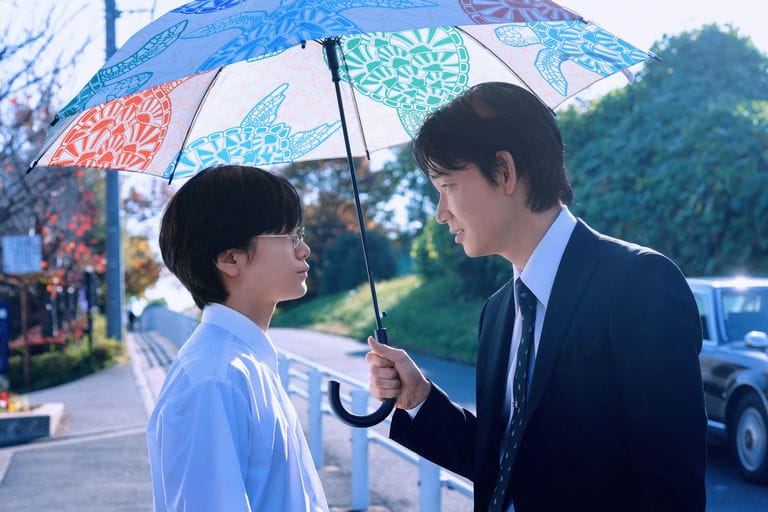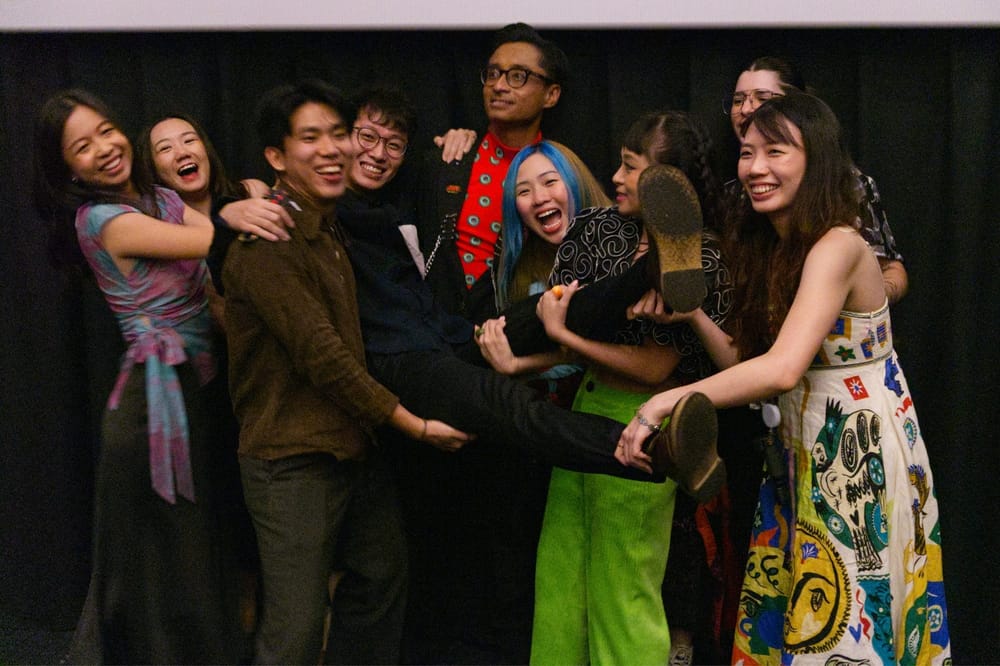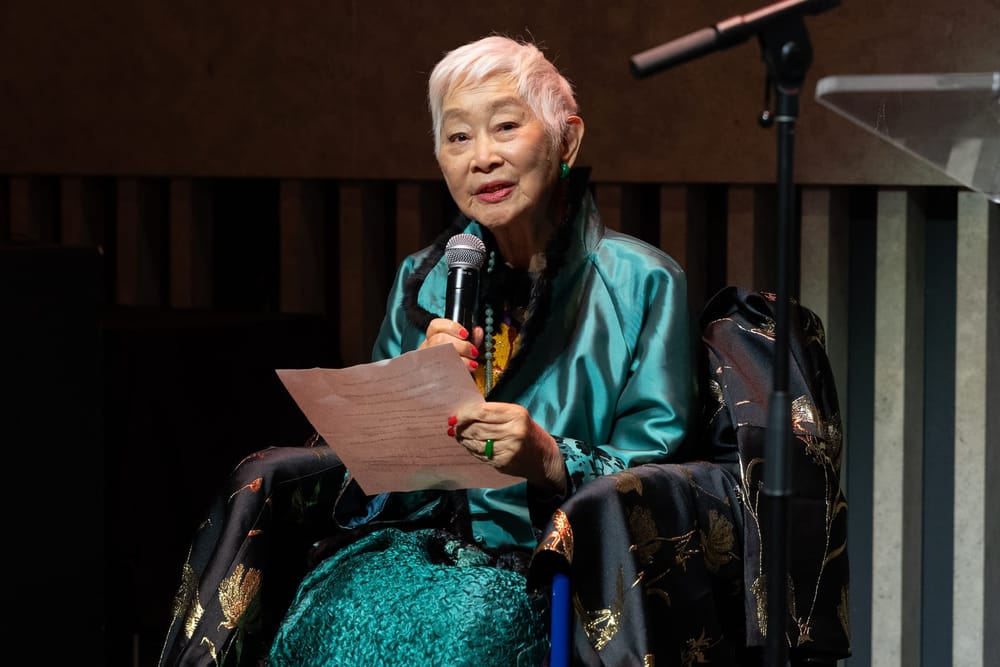By Noel Vera
Nobuhiro Yamashita's "Let's Go Karaoke!" (2023) continues the director's exploration of nonprofessional music-making, a theme he's revisited throughout his career. Mark Schilling of The Japan Times compares him to minimalist masters like Aki Kaurismaki and Jim Jarmusch, and there's truth to this comparison: Yamashita's work is gentle, not quite as visually rigorous as some auteurs, but with its own distinct charm.
Yamashita's earlier film "Linda Linda Linda" (2005) was an unexpected pleasure, deftly depicting the formation and eventual success of an amateur girl band while skillfully avoiding tired conventions like melodramatic highlights, easy sentiment, and cutesy romance subplots. That film featured a charmingly gangly early performance by Doona Bae, capturing the small pleasures that many enthusiasts of recent Japanese cinema treasure.
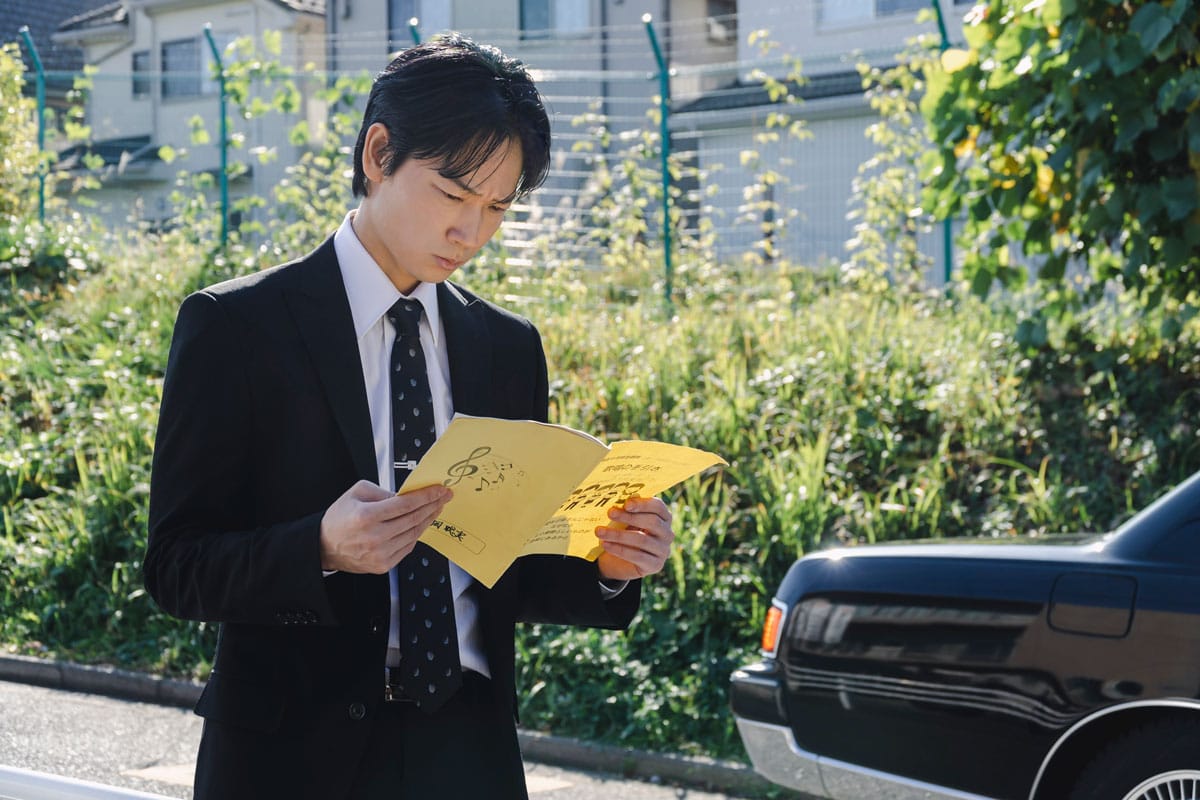
"Let's Go Karaoke!," adapted from the manga by Yama Wayama, centers on a yakuza determined to win his boss's annual karaoke contest who seeks out a junior high choir member for singing lessons. It's a compelling premise, but what draws you in is the deceptively offhand way Yamashita develops the relationship between the gangster and the student: the director leans into the lurid implications then deftly steps aside to reveal a more mundane reality, with occasional hilarious details that disarm any potential skepticism.
It helps that the cast resembles a junior high chorale, with all the enthusiasm of club members determined to make their production a success. Jun Saito, who plays junior high schooler Satomi Oka, is a veteran of TV and anime voice work but a newcomer to the big screen; Go Ayano as yakuza Kyoji Narita has worked with a wide range of filmmakers and his onscreen ease contrasts sharply with Saito's marked ungainliness. The interplay between Satomi's self-contained demeanor and Kyoji's confident loose-limbed improvisations generates enough chemistry to keep us engaged, sometimes even catching us off-guard.
The film is more than the sum of its cute jokes though; Satomi is on the cusp between childhood and adolescence, with his voice on the verge of breaking. This looming change has only added to his anxiety, leaving him uncertain about his place in the chorale, with his friends, and with his family. Maybe the only continuity he can count on is Kyoji, the one guy with a criminal record -- but how can Satomi be sure Kyoji's motives are honorable? How can he know Kyoji won't lose that volatile yakuza temper and beat him, or rope him into some dangerous criminal enterprise?
Yamashita employs the minimalist documentary-like style he used in "Linda Linda Linda," with a kind of open framing that allows actors to move freely about. At the same time, repetition and gestures, and tiny details develop the scene and character – whether it's a tuning fork as an aural talisman, a glass of orange juice as a hospitality compromise, or the phrase 'Let's go Karaoke' as a Faustian invitation to either mischief or further intensive vocal training.
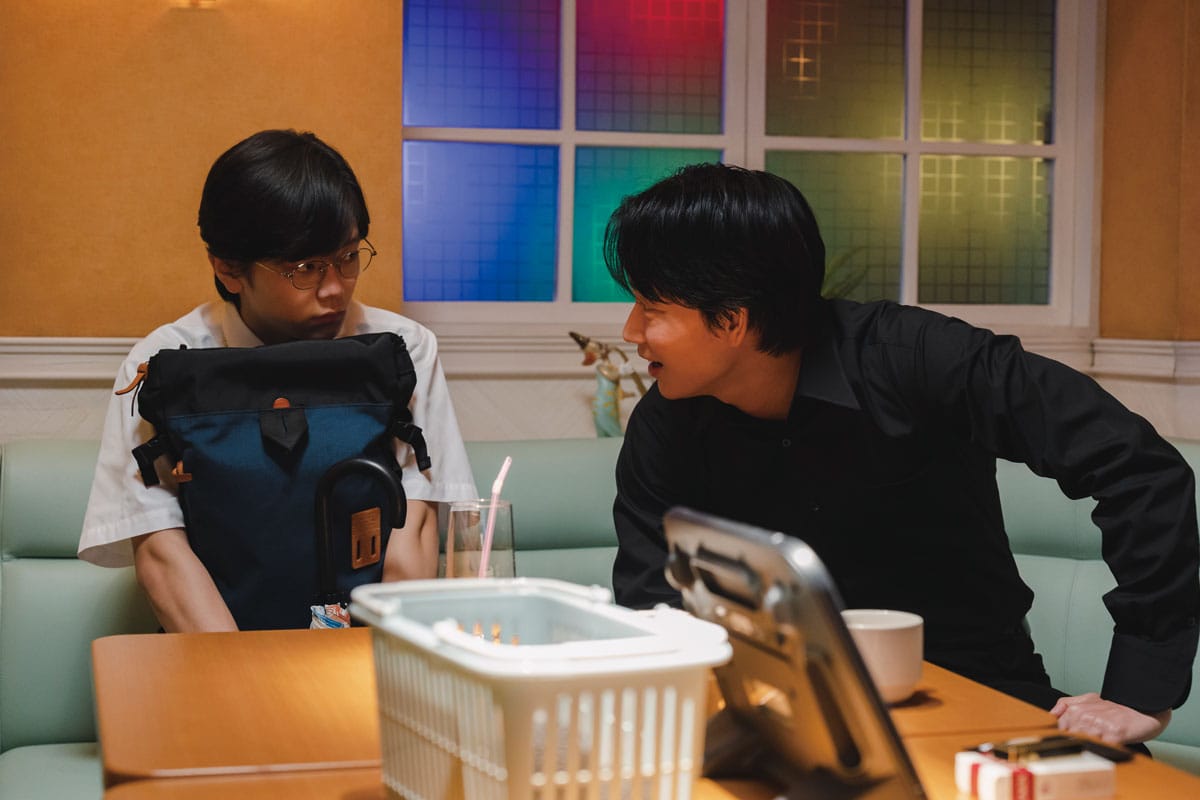
The director has learned a few tricks along the way – a gliding camera, for one, that floats from one suite to another to suggest the endless days of practice, underlining the essential interchangeability of karaoke rooms – plus a gift for musical accompaniment that enhances the storytelling without drawing attention to itself (Satomi's mom giving dad a portion of her salmon skin for dinner, to the accompaniment of a ridiculously appropriate heavenly choir).
It's a fun, light confection of a film with something to say about commitment and finding the right balance while negotiating major changes in your life. While it may not achieve instant cult status, "Let's Go Karaoke!" is likely to resonate with audiences who appreciate nuanced storytelling and characters that feel refreshingly real. In a cinematic landscape often dominated by extremes, Yamashita's measured approach offers a welcome alternative, reminding us of the power of subtlety in storytelling. Definitely worth a look.
OriginalTitle: カラオケ行こ!
EnglishTitle: Let's Go Karaoke!
Genre: Drama
Director: Nobuhiro YAMASHITA
Screenplay: Akiko NOGI
Original comic: “Karaoke Iko!” by Yama WAYAMA
Cast: Go Ayano,Jun Saito, Kyoko Yoshine, Jun Hashimoto, Kazuki Kitamura
Languages: Japan
Running time: 108 minutes


